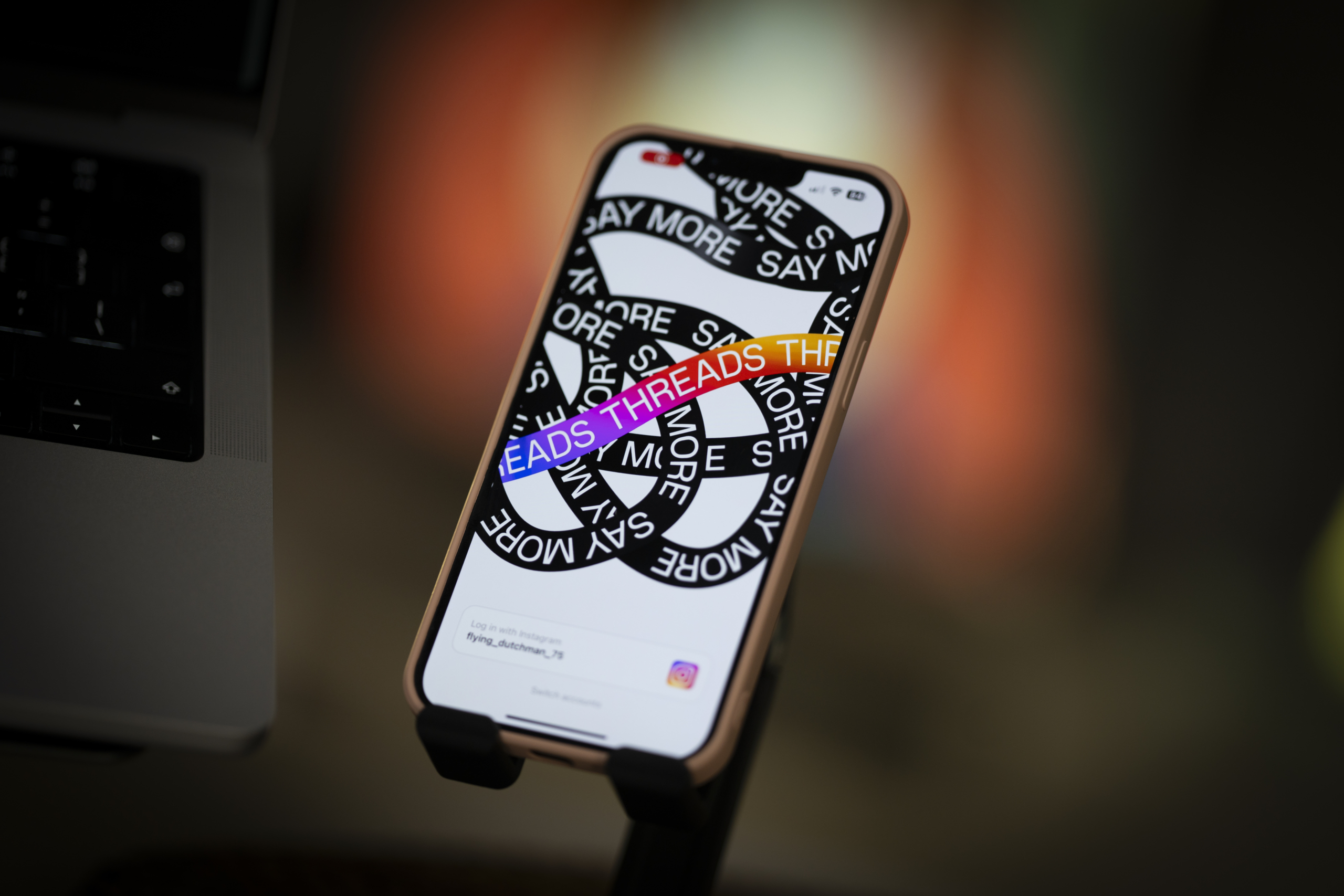<p>In July, Meta debuted Threads—a social networking app whose launch appeared motivated by the travails of X, the platform then still known as Twitter—by giving users of Instagram, Meta’s photo and video sharing platform, the ability to set up an account. The following week, my colleague Jon...
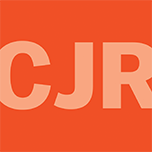
www.cjr.org
Is Threads winning the war with X?
NOVEMBER 9, 2023
By MATHEW INGRAM
The Meta Facebook Instagram Threads web application is seen in this illustration photo in Warsaw, Poland on 26 August, 2023. (Photo by Jaap Arriens/NurPhoto via AP)
In July, Meta debuted Threads—a social networking app whose launch appeared motivated by the travails of X, the platform then still known as Twitter—by giving users of Instagram, Meta’s photo and video sharing platform, the ability to set up an account. The following week, my colleague Jon Allsop and I
discussed whether Threads would be able to compete with X and how useful it might be for journalists. Four months on, Threads has arguably become a significant competitor for X, and has done so a lot faster than many people expected: the app hit thirty million sign-ups
within twenty-four hours of its launch; in a conference call on October 25, Mark Zuckerberg, Meta’s cofounder and CEO, said that it now has
almost a hundred million monthly users,
making it one of the fastest-growing apps in history, even beyond the initial sugar rush. And there are signs of growing usefulness for journalists, too—though that’s a more complicated story.
A year after Elon Musk formalized his takeover of X, that platform’s user metrics
are down across the board. Musk said earlier this year that X has somewhere in the neighborhood
of five hundred and thirty million monthly users; if both companies’ figures are accurate, then Threads has managed to sign up almost a fifth as many monthly users as a competitor that has been around since 2007. The turmoil at X since Musk’s acquisition has doubtless helped push users toward Threads. But that’s not the only reason for the latter’s apparent success.
Last month, Casey Newton wrote
in his Platformer newsletter that the conflict between Israel and Hamas also seems to have helped tip the scales in favor of Threads. For more than a decade, Newton noted, people flocked to X whenever a global crisis struck, attracted by its mix of first-person testimony, verified journalists sharing factual reporting, and a broad range of commentary on whatever was happening. But that platform no longer exists,
Newton argued; X may still offer first-person accountings of the news, but Musk’s approach to verification makes it impossible to tell what is reliable and what is not, since the blue check that used to denote a verified account can now be purchased by any user. The desire for factual reporting and commentary about the Israel-Hamas conflict, Newton added, was the latest instance of what the commentator Ezra Klein has called a series of “
exodus shocks” from X, driven by Musk alienating his own user base (or parts of it, anyway).
Although Threads has not published granular data on its growth in usership, Newton notes that he got an influx of new followers on the app after the Israel-Hamas war began. Last month, the Threads account of Reliable Sources, CNN’s media newsletter, posted asking journalists to tag themselves in the replies;
more than two thousand accounts did so, including those belonging to staffers at Bloomberg, NPR, the
Boston Globe, the
Detroit Free Press, and other outlets. Andrew Kaczynski, a CNN reporter,
noted in a post that it “feels like Threads is just getting better every day.” Although it lacked some of the same features as X when it launched, Threads has since added some similar functions, including
a Web browser version, a search function, and
a feature allowing users to edit their posts. The app has yet to fulfill one of the key promises that Meta made at launch: that it would “federate” with other social networks, allowing users of other platforms, such as Mastodon, to see and interact with its content. But Adam Mosseri, the Meta executive in charge of Threads, said recently that he
hopes that this and other features will be added in the next few months.
When
I spoke with Allsop after the launch of Threads, I said that—while the app was still so new that it was hard to get a sense of what it represented or even how it worked—it seemed to be part Twitter and part Instagram: two types of functionality, I argued, that were “in conflict with each other in some pretty fundamental ways.” I quickly tried to replicate my X network on Threads, to the extent that that was possible, but in its early days, the latter app seemed to be populated primarily by brands and
Instagram-style influencers whose accounts were presumably seeded into the network, or promoted by the algorithm, as a way of jump-starting the timeline for new users. These accounts didn’t interest me, so I spent very little time on Threads. But over the next few months, I noticed more journalists showing up there—and, in much the
same way as Newton, noticed a particular jump in both activity and followers after Hamas attacked Israel.
Prior to the Israel-Hamas conflict, the utility of Threads to journalists and news junkies was the subject of much debate—especially after Mosseri said, in a discussion with Alex Heath of
The Verge, that
the app would not “do anything to encourage” the sharing of news, on the grounds that the negativity and additional scrutiny that come with being a platform for hard news aren’t worth the “incremental engagement or revenue.”
Threads, Mosseri said, could appeal to more than enough communities—sports, music, fashion, entertainment, and so on—without having to make everything about news. He later clarified that Threads was not going to down-rank news in its algorithm, but added that the app wouldn’t actively promote it either, the way Facebook once did. Mosseri said that
Meta had been “too quick to promise too much to the industry on Facebook in the early 2010s, and it would be a mistake to repeat that.”
Unsurprisingly, this irritated a number of journalists on Threads, and was likely counterproductive—as Newton put it, if you want
to create a network where the world’s most influential journalists gather to post and discuss their news, “all you have to do is say that news is not a priority for you.” In a similarly tongue-in-cheek comment, Yair Rosenberg, of
The Atlantic, said that if Threads wanted to
provide a service to journalists, it should allow posts on the app to be embedded into stories on third-party sites, thus allowing reporters to “sit on their couch and write entire articles about a handful of posts as though they represent something significant.” In any case, despite Mosseri’s stated lack of interest in news—not to mention the lack of newsy X-style features on Threads, like a tab for trending topics—I found,
as CNN’s Kaczynski did, that over time, Threads became a useful news source, and certainly more useful than the increasingly questionable news environment over on X.
This isn’t to say that Threads doesn’t still have its issues. In our initial discussion, Allsop
raised another issue that many observers had mentioned early on, noting that he found it “somewhat astonishing” that many past critics of Meta and Zuckerberg had leaped into a new Meta product “without a second thought.” Writing last month, Jason Koebler of
404 Media, a news site formed by exiles from
Motherboard,
wrote that it was “weird to watch” some journalists who were aware of Facebook’s history adopt Threads just because Zuckerberg is “a little less awful” than Musk. Despite this, Koebler said that he would continue to use Threads because he is a “pragmatic person who wants to connect with readers wherever they are,” and also because his livelihood depends on doing so.
Taylor Lorenz, a journalist at the
Washington Post who writes about online communities and networks,
raised another potential issue with Threads: the app currently blocks posts and searches for terms such as “COVID” and “long COVID,” a limitation, Lorenz wrote, that cuts vulnerable people off from access to crucial information, prevents journalists and experts from holding the government and political leaders to account, and, ultimately, “endangers people’s lives.” Lorenz
reported that a number of other terms—such as “sex,” “porn,” “coronavirus,” and “vaccines”—are also blocked. Threads responded in a statement that its search function doesn’t provide results for queries that might return “potentially sensitive content.” Last month, Mosseri
said on Threads that the blocking is temporary and that the company hopes to reverse it, but that it is getting “pulled in a lot of different directions at once right now.”
In our discussion, Allsop asked me what Threads—along with the decline of X and the possible splintering of audiences across multiple apps—might mean for journalism. I replied that it would likely make journalists’ jobs even harder than they have been in the past, forcing us to use multiple different platforms to reach everyone who used to be on Twitter or risk failing to connect with some portion of our audience and sources, with resulting declines in engagement and readership for our work. Such dynamics could, in turn, intensify the
economic challenges already facing many journalists and news organizations.
It’s currently unclear if Threads will keep growing to the point where it can take over at least some of X’s pretensions to be a unified
“global town square.” It’s unclear, too, whether that eventuality would be enough of a draw for journalists that we’re willing to overlook—or to continue to hold our nose at—Meta’s history with disinformation, privacy invasions, stoking ethnic violence, and other unpleasant events. Is it better to hand over our personal data and conversations with sources and audiences to a more friendly billionaire, or is that just a Faustian bargain? As Charlie Warzel
noted in The Atlantic back when Threads was founded, users of any of our major social networks have to realize that they are all “at the pleasure of internet boy-kings. These are not our spaces.”



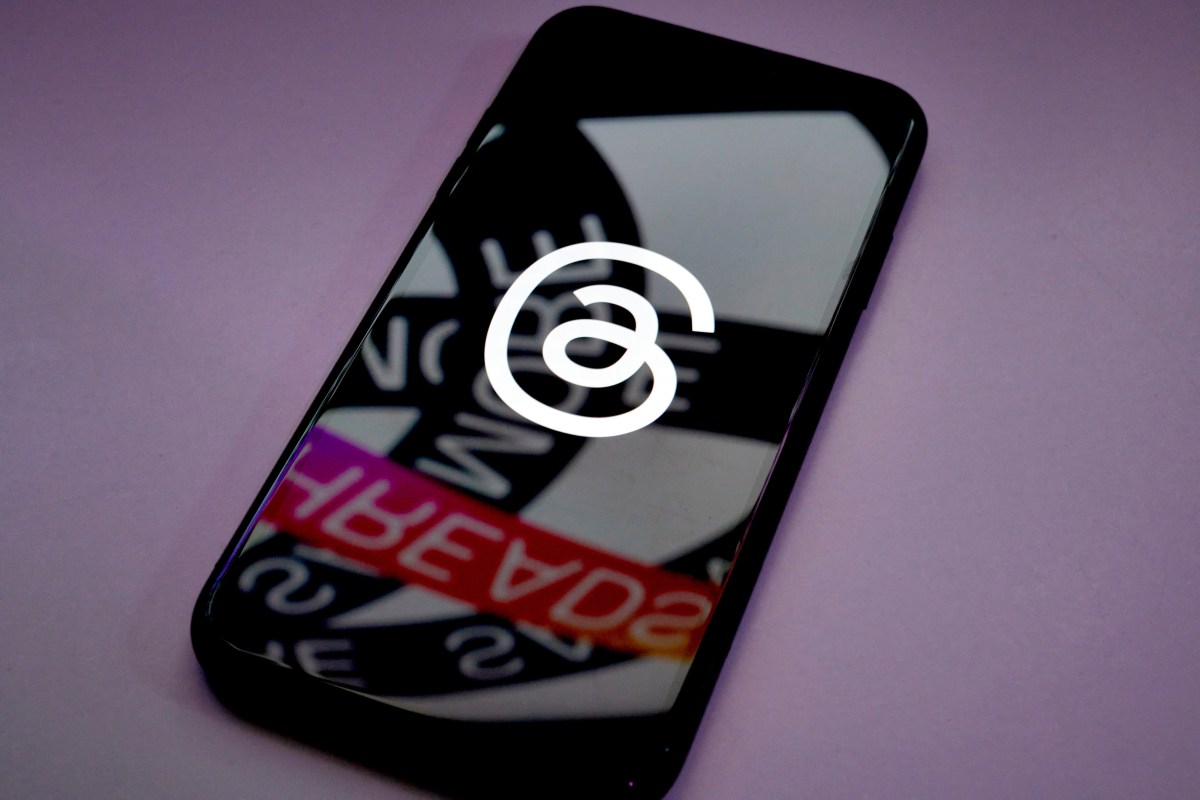


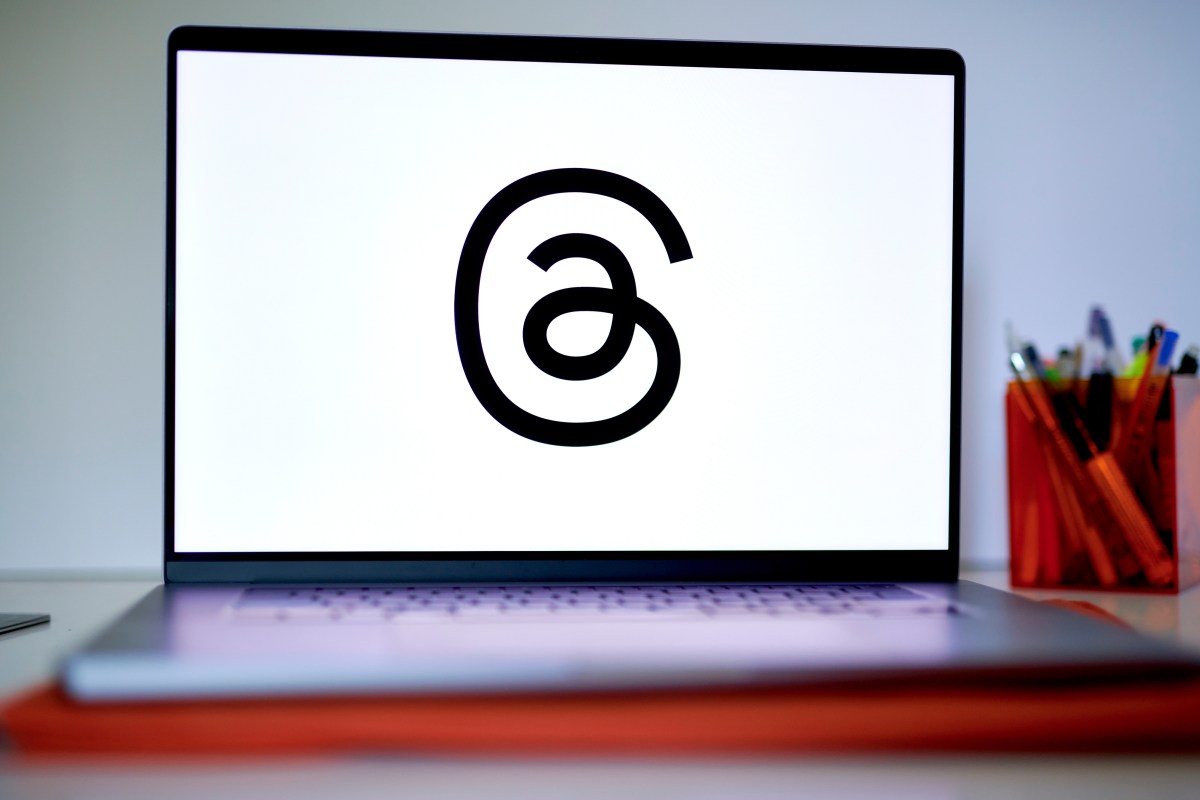

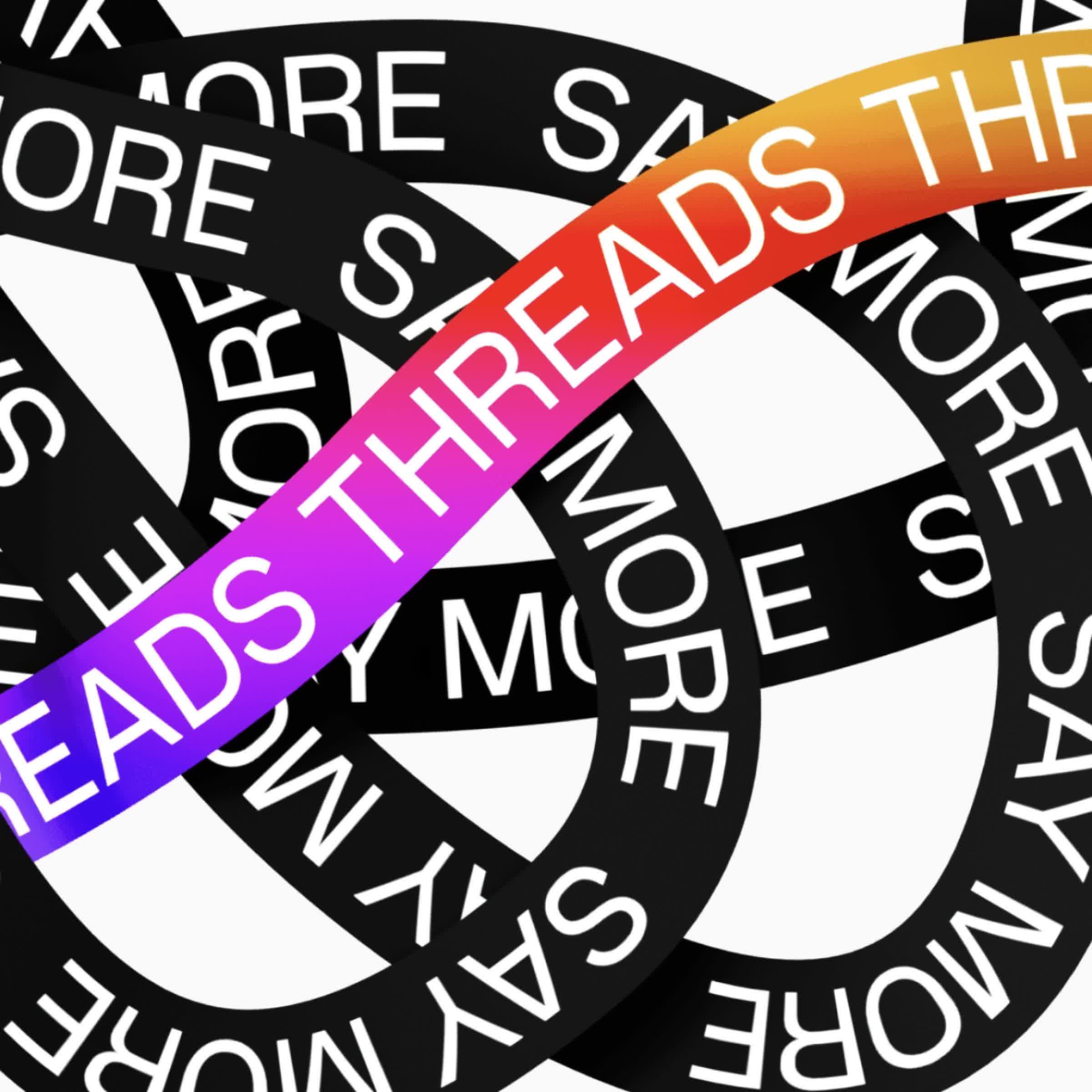

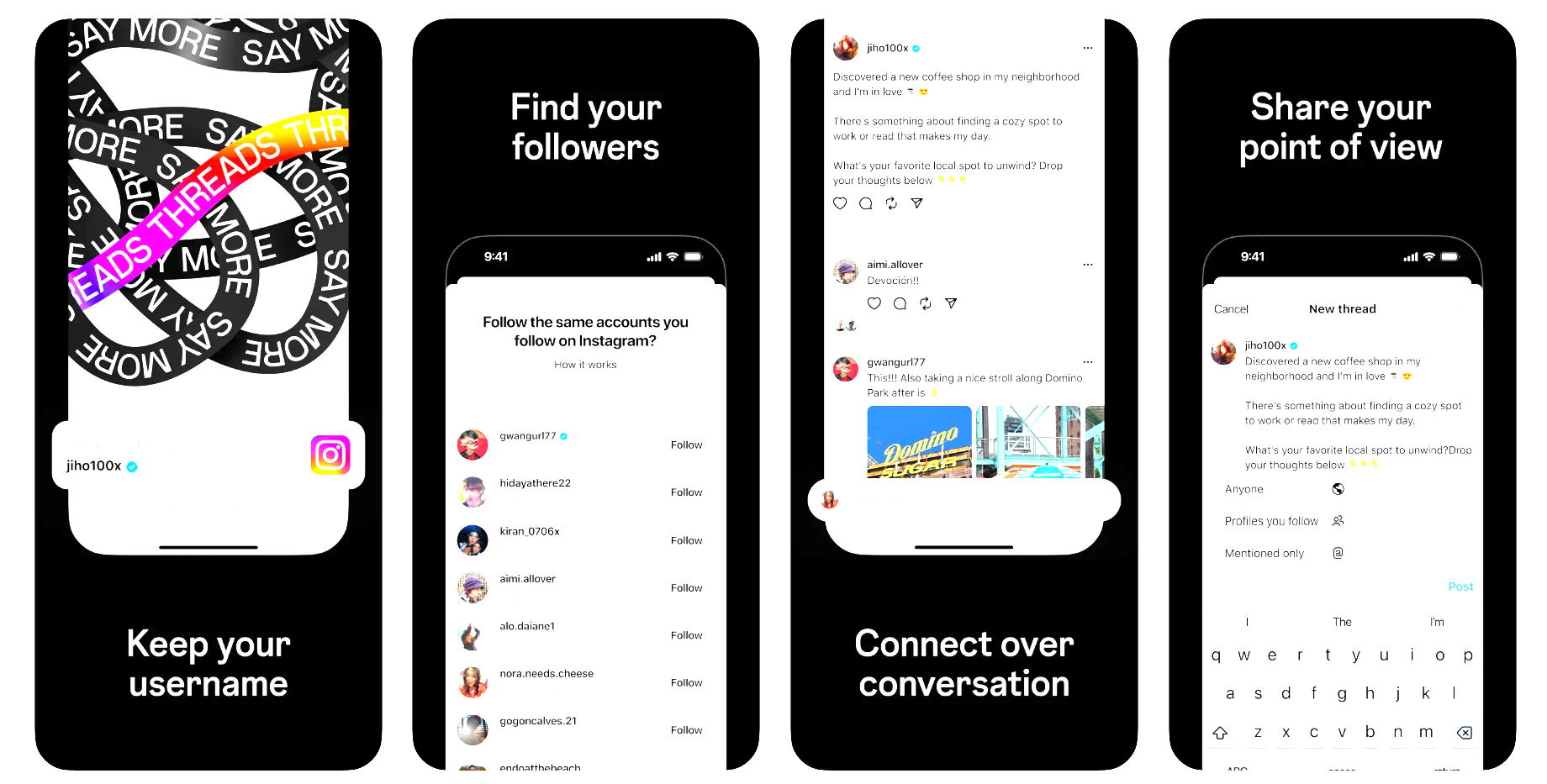

:format(webp)/cdn.vox-cdn.com/uploads/chorus_asset/file/24774109/STK156_Instagram_threads_2.jpg)


